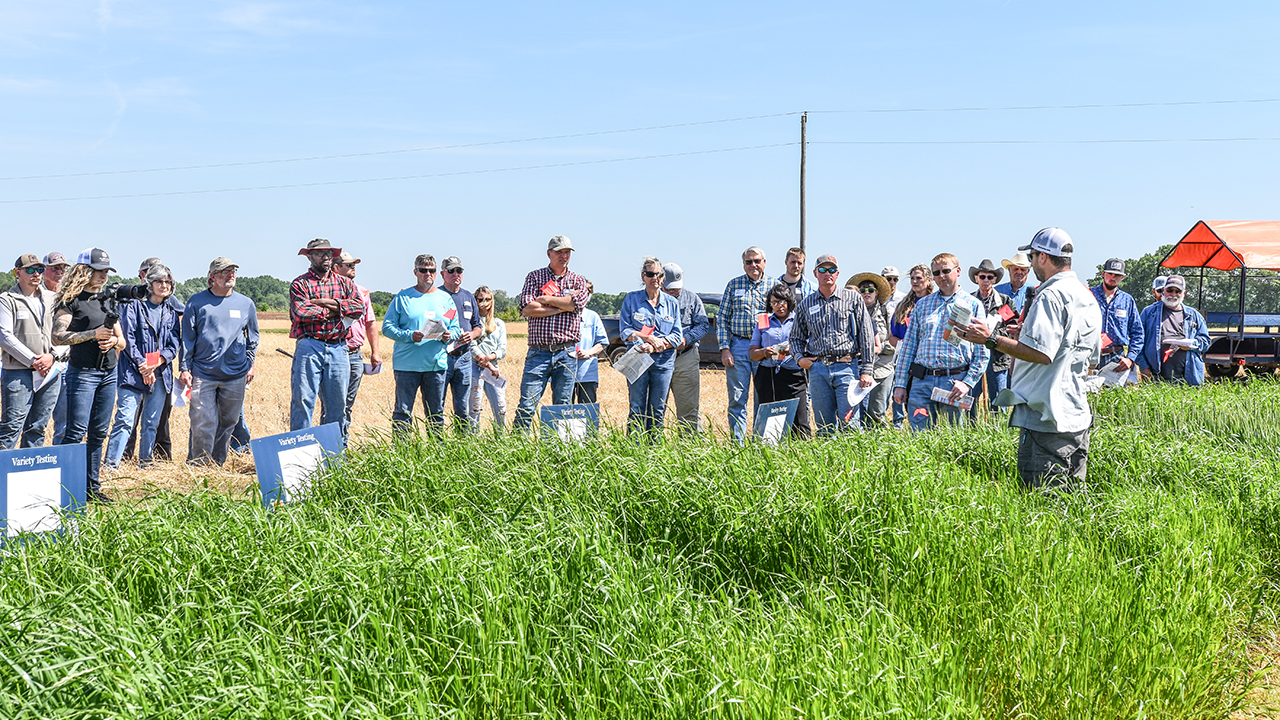Auburn University
Variety Testing Program

Variety selection is the most important decision a farmer can make. If farmers want to be successful, they must ensure that they plant varieties that are well adapted. If a farmer selects the wrong variety, the results can be catastrophic. Typically, farmers do not have the resources to conduct variety trials in addition to their normal growing season activities.
Variety evaluation is also critical to plant breeders, both from universities and industry. Prior to releasing a new variety, these breeders typically evaluate their lines in independent variety trials. This ensures that they have unbiased data from multiple years and locations to support the release of their new variety.
The mission of the Auburn University Variety Testing Program is to provide research-based, unbiased results on the performance of various crop hybrids, cultivars, and varieties to the agricultural community in Alabama. We are intent on conducting these trials in a manner that will result in maximum biological yield through methods common to the top-producing farms in Alabama.
We are committed to providing this information in a timely manner for its use during the decision-making process. The success of the program rests on our ability to help Alabama producers provide a safe, dependable source of food and fiber for all families as well as an economic sustainability for theirs.

Henry Jordan
Variety Testing Manager, Research Associate IV
Subscribe to AU Variety Testing Updates
Annually, the Auburn University Variety Testing Program conducts trials on corn, cotton, soybeans, peanuts, grain sorghum, wheat, barley, oats, triticale, small grain forages, and ryegrass.
Trials are conducted on Auburn University owned and operated agricultural research stations across the major geographical regions of the state. The research conducted at each of these locations can provide stakeholders with data that can be more representative of their growing conditions.
VARIETY CATEGORIES
Cow Talks Podcast – 2023 Cool Season Forage Recommendations
Recently, Dr. Marcelo Wallau, University of Florida Forage Extension Specialist, spent some time at Auburn reviewing our cool-season variety trial data and discussing the results. Much of his discussion with Dr. Leanne Dillard, Auburn Forage Extension Specialist, and...
2023 Brewton Row Crops Field Day
There one more opportunity to visit an Auburn University Research and Extension Centers, learn from and interact with specialists, and see current research in person. Tuesday, September 19th Brewton Agricultural Research Unit (BARU) Registration 8:00-8:30 AM Tour -...
Hessian Fly Ratings, 2022-2023
BY: Henry G. Jordan Jr., AU Variety Testing Manager Dr. David Buntin, UGA Professor of Entomology Dr. Katelyn Kesheimer, AU Extension Entomologist Spring 2023 saw a serious infestation of Hessian fly in wheat across the southern United States, and variety selection is...
2022-2023 On-Farm Wheat
July 21 Results have been posted to the variety selection platform for the 2022-2023 on-farm wheat variety trials conducted by Assistant Extension Professor Tyler Sandlin. A report in PDF format will be posted as soon as it becomes available. 2023 On-Farm...
2023-2024 Entry Form – Small Grain Variety Trials at Auburn University
July 21 - Entry forms for the Auburn University Variety Testing - Small Grain Variety Trials are now available. View last year's data here. The deadline for seed is October 1st. For wheat and oats, please send 6 lb of seed per variety per region. For triticale and...
2023-2024 Entry Form – Small Grain Forage Variety Trials at Auburn University
July 12 - Entry forms for the Auburn University Variety Testing - 2023-2024 Small Grain Forage Variety Trials are now available. View last season's data here. The deadline for seed is August 27th. Please send 7 lbs of seed per entry. For the 2022-2024 season, small...
